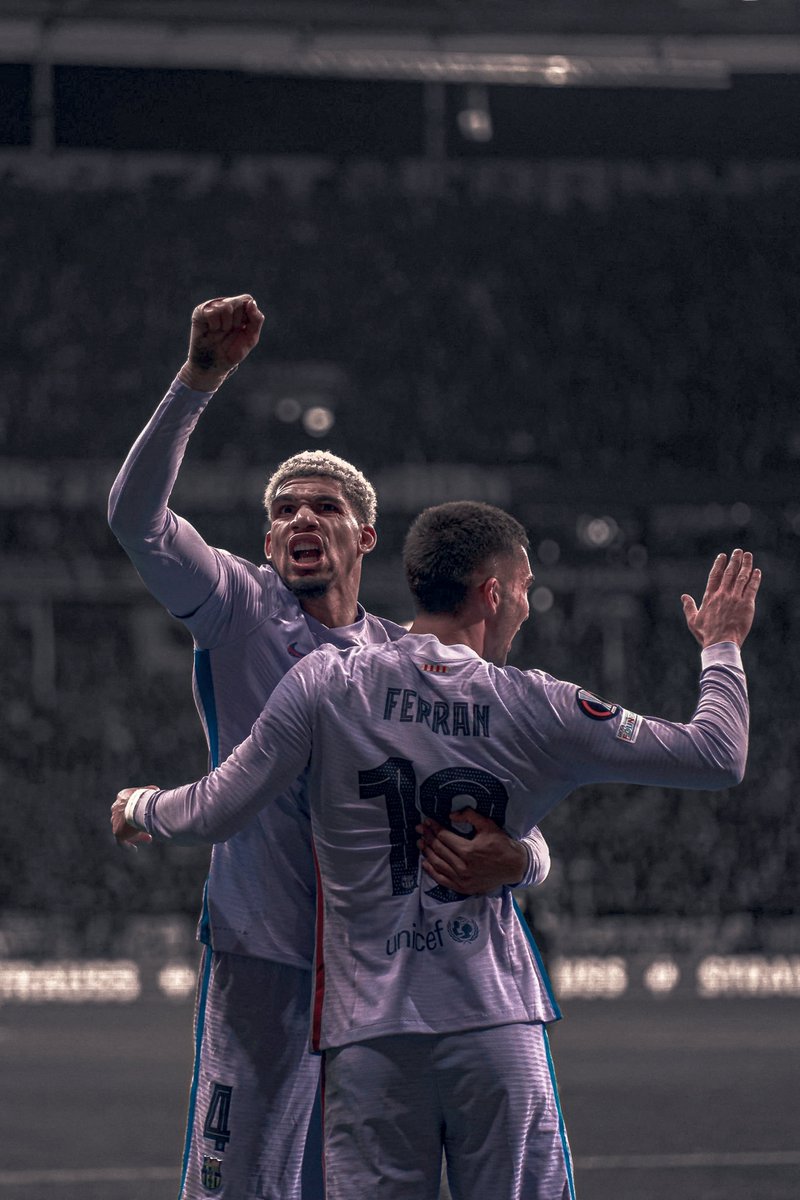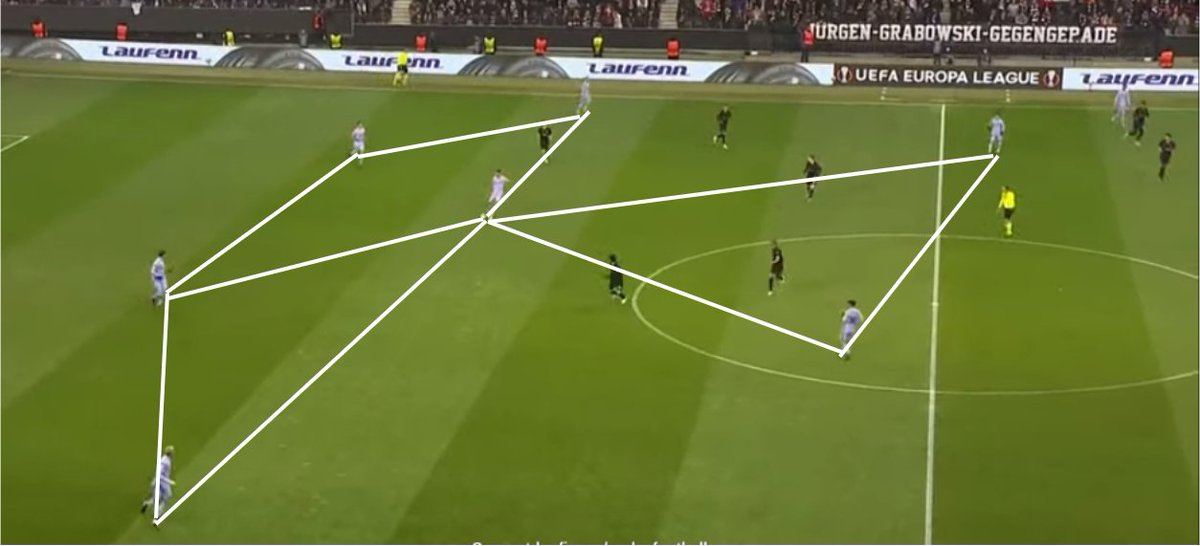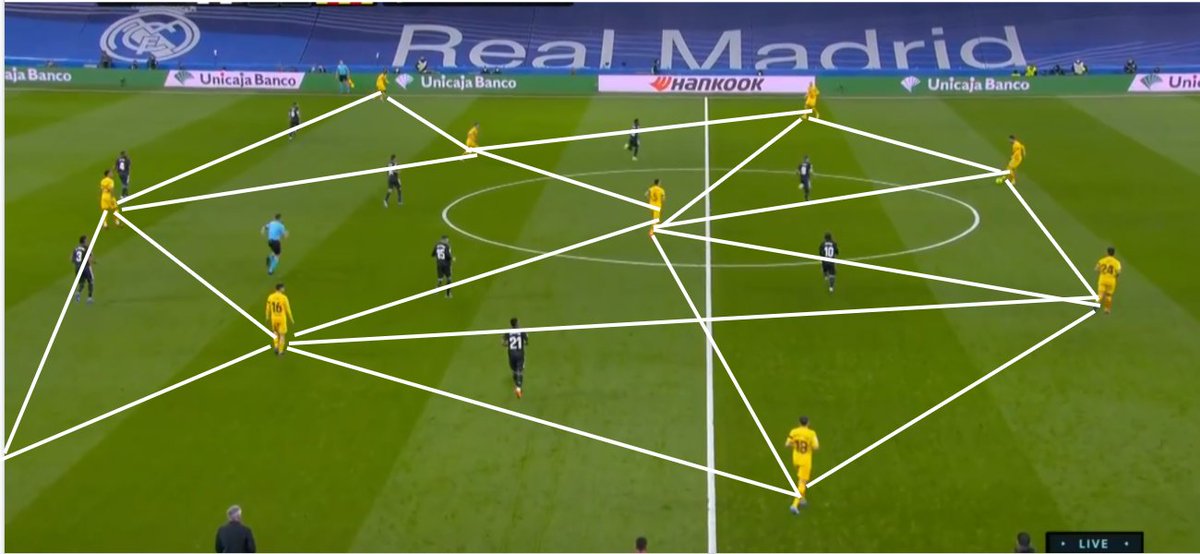
Germany's exit explained – as requested – #JdPMiniThread 

I. Background
Since the 2014 World Cup Trophy, Germany's legacy has become forgettable. The 2016 Euros didn't convince many, and 2018 became the last straw for Joachim Löw – losing against South Korea in the process.
The Old Guard had to retire, change was coming.
Since the 2014 World Cup Trophy, Germany's legacy has become forgettable. The 2016 Euros didn't convince many, and 2018 became the last straw for Joachim Löw – losing against South Korea in the process.
The Old Guard had to retire, change was coming.
After the Champions League victory with Bayern, Hansi Flick was hired by the DFB as the national team coach.
His job? Ensure the transition be smooth, with new talents with likes of Kai Havertz, Jamal Musiala, Bella-Kotchap, Joshua Kimmich and Sané + Gnabry making their names.
His job? Ensure the transition be smooth, with new talents with likes of Kai Havertz, Jamal Musiala, Bella-Kotchap, Joshua Kimmich and Sané + Gnabry making their names.
II. Problems
In this new generation, Germany face(d) major replacement problems. World-class Klose was never replaced, and Müller isn't precisely a #9 – A Raumdeuter.
Someone else retired, of major importance. His name? Kroos, Toni Kroos.
And furthermore, centre-backs.
In this new generation, Germany face(d) major replacement problems. World-class Klose was never replaced, and Müller isn't precisely a #9 – A Raumdeuter.
Someone else retired, of major importance. His name? Kroos, Toni Kroos.
And furthermore, centre-backs.
II.A) Penalty box
Out of Germany's centre-back, only Rüdiger actually is a proper box defender – with that said, finding weaknesses between the lines v Germany isn't much work.
If anything, teams have shown it's pretty easy, notably by drawing markers, lacking references.
Out of Germany's centre-back, only Rüdiger actually is a proper box defender – with that said, finding weaknesses between the lines v Germany isn't much work.
If anything, teams have shown it's pretty easy, notably by drawing markers, lacking references.
II.B) Lacking references.
Because of Germany's major depth in quite a few positions, Hansi Flick has found himself in major doubt for many positions, abnormal for a country of Germany's magnitude.
The right-back, midfield and attack have suffered heavy rotations.
Because of Germany's major depth in quite a few positions, Hansi Flick has found himself in major doubt for many positions, abnormal for a country of Germany's magnitude.
The right-back, midfield and attack have suffered heavy rotations.
II.C) Unforced rotations
These rotations, unlike one might suggest, we not forced by injuries. They were by choice – Kimmich, Gündogan, Goretzka, or Musiala/Sané/Gnabry – and a Müller/Havertz that find it hard to cement a place due to their specific roles – no #9.
These rotations, unlike one might suggest, we not forced by injuries. They were by choice – Kimmich, Gündogan, Goretzka, or Musiala/Sané/Gnabry – and a Müller/Havertz that find it hard to cement a place due to their specific roles – no #9.
II.D) Lack of control
With all the said profiles, Germany can create chances, without any doubt.
But what it can't do, it control – what's often referred to as possession control, which is Spain's major brand above all.
Additionally, Germany lacks proper defending coordination.
With all the said profiles, Germany can create chances, without any doubt.
But what it can't do, it control – what's often referred to as possession control, which is Spain's major brand above all.
Additionally, Germany lacks proper defending coordination.
II.E) High variance.
As such, Germany is a team that could score but was not certain to, that couldn't defend in the best way and that was likely to concede in transition.
Added to that, there are little mechanisms of the team to rely on, due to regular rotations.
As such, Germany is a team that could score but was not certain to, that couldn't defend in the best way and that was likely to concede in transition.
Added to that, there are little mechanisms of the team to rely on, due to regular rotations.
III) Criticisms of Hansi Flick
Certain player profiles were barely used in the World Cup, and major questions float today as to 'why'. An example is Moukoko, or even, Adayemi. These are profiles Germany would've benefited of instead of Müller.
Certain player profiles were barely used in the World Cup, and major questions float today as to 'why'. An example is Moukoko, or even, Adayemi. These are profiles Germany would've benefited of instead of Müller.
III.A) Trained mechanisms
How come that, in 2022, when the transitions should almost be complete, there's no regular XI, with no certainty of potential starters.
There's no control, and no *regular*, trained mechanisms because the players aren't used to play together.
How come that, in 2022, when the transitions should almost be complete, there's no regular XI, with no certainty of potential starters.
There's no control, and no *regular*, trained mechanisms because the players aren't used to play together.
IV) Final words
This doesn't mean Hansi Flick's tenure should end right here. There just need to be realization around Germany's problems, that, through better personnel selection and more consistency, can be fixed as Germany's core is more than apt to improve and perform.
This doesn't mean Hansi Flick's tenure should end right here. There just need to be realization around Germany's problems, that, through better personnel selection and more consistency, can be fixed as Germany's core is more than apt to improve and perform.
• • •
Missing some Tweet in this thread? You can try to
force a refresh











